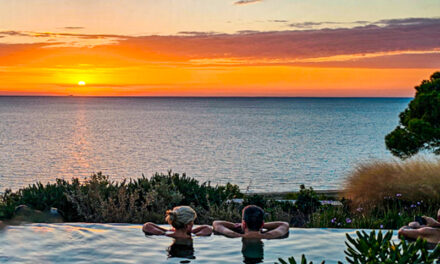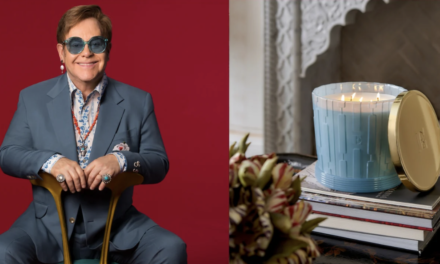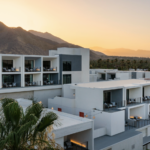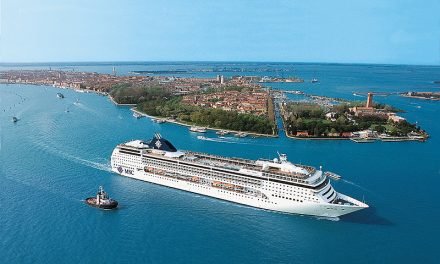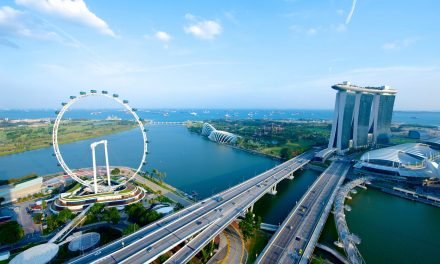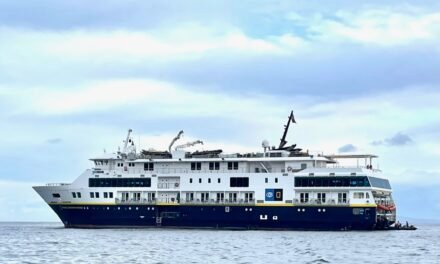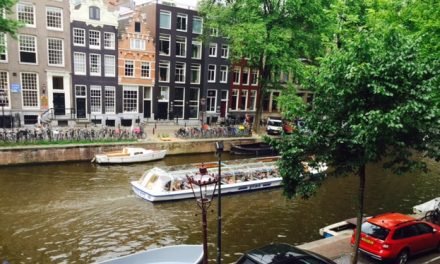
MS Europa Using Cold Ironing in Hamburg
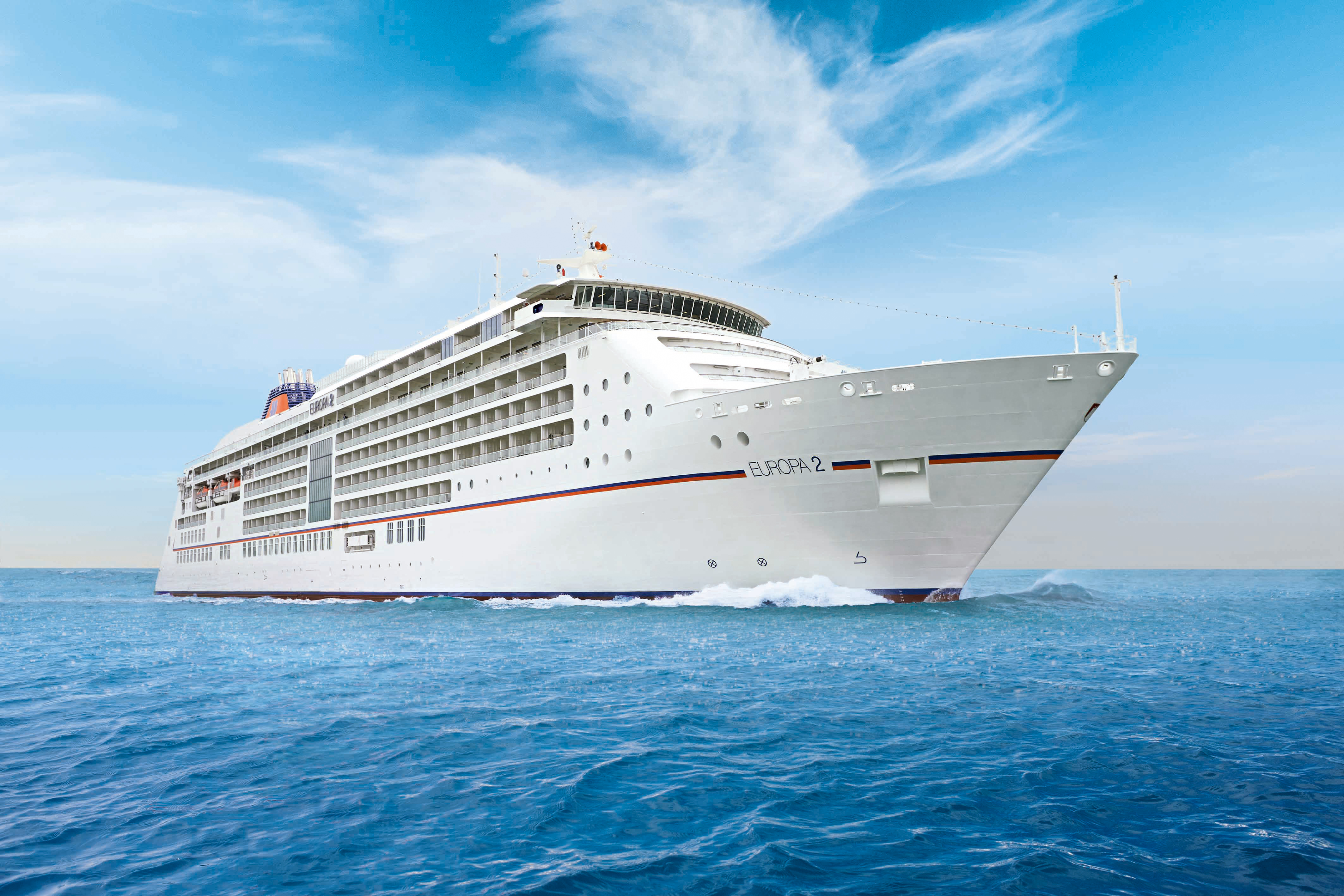
The EUROPA 2 is now using cold ironing at the Cruise Center Altona in Hamburg, Germany. The process provides shoreside electrical power to a ship at berth while its main and auxiliary engines are turned off. In this test phase, the undisrupted use and compatibility had been comprehensively tested and prepared when the EUROPA 2 was moored in its berth in Altona. This down time – due to the current travel restrictions – offered the opportunity to successfully complete the test phase. All newly built ships in the Hapag-Lloyd Cruises fleet are equipped for the use of cold ironing. Another important component of the environmental strategy, is the extension of the use of low-pollutant marine gas oil, with a sulfur content of 0.1% to the entire fleet.
The small luxury ship the EUROPA 2, with a capacity of 500 guests, requires only 2.2 MW (megawatt) of power per hour during port time and is able to reduce its emissions to almost zero. The electricity used is being supplied by ‘Hamburg Energie’ and comes from 100% renewable resources, which means that the operation of the EUROPA 2 in the port is practically climate-neutral.
The EUROPA 2 was the first cruise ship in the world to be fitted with SCR catalytic converters. The catalytic converters reduce nitrogen oxide emissions by almost 95%. It is also the first cruise ship to have EEDI (Energy Efficiency Design Index) certification, and its CO2 emissions are 31% below the target value. The other new ships in our expedition fleet are continuing this strategy. and are also equipped with these catalytic converters.
“With our years of expertise in the luxury and expedition segment we set the highest standards in the industry with our ships, and are committed to adhering to strict environmental protection standards. We have already made significant progress in this field and never stop working to improve it further,” says Karl J. Pojer, CEO of Hapag-Lloyd Cruises. He continues: “We use marine gas oil with a low 0.1% sulphur content in the whole fleet, all over the world, thereby going beyond the legal requirements. Successful use of cold ironing is another important part of our environmental strategy.”
By transitioning to the low-pollutant fuel voluntarily, the sulphur emissions of the Hapag-Lloyd Cruises fleet will be cut by 80%. The switch to marine gas oil also means a reduction in soot and particulates of up to 30%. In addition to this, all routes are carefully planned with an eco-efficient average speed, not pushing vessels to go as fast as possible reduces consumption by 30% and thus also lowers the emissions.
An overview of all the environmental measures and environmental technologies on board the ships in the Hapag-Lloyd Cruises fleet is available in our 40-page environmental brochure. It can be accessed in electronic form on the company website at https://www.hl-cruises.com/cruise-with-us/environmental-management
Reservations: International guests, as well as travel agencies, can call 877 445-7447 or 800 334-2724 or send an e-mail to salesteam@hl-cruises.com or visit www.hl-cruises.com/contact-services for local agents.

